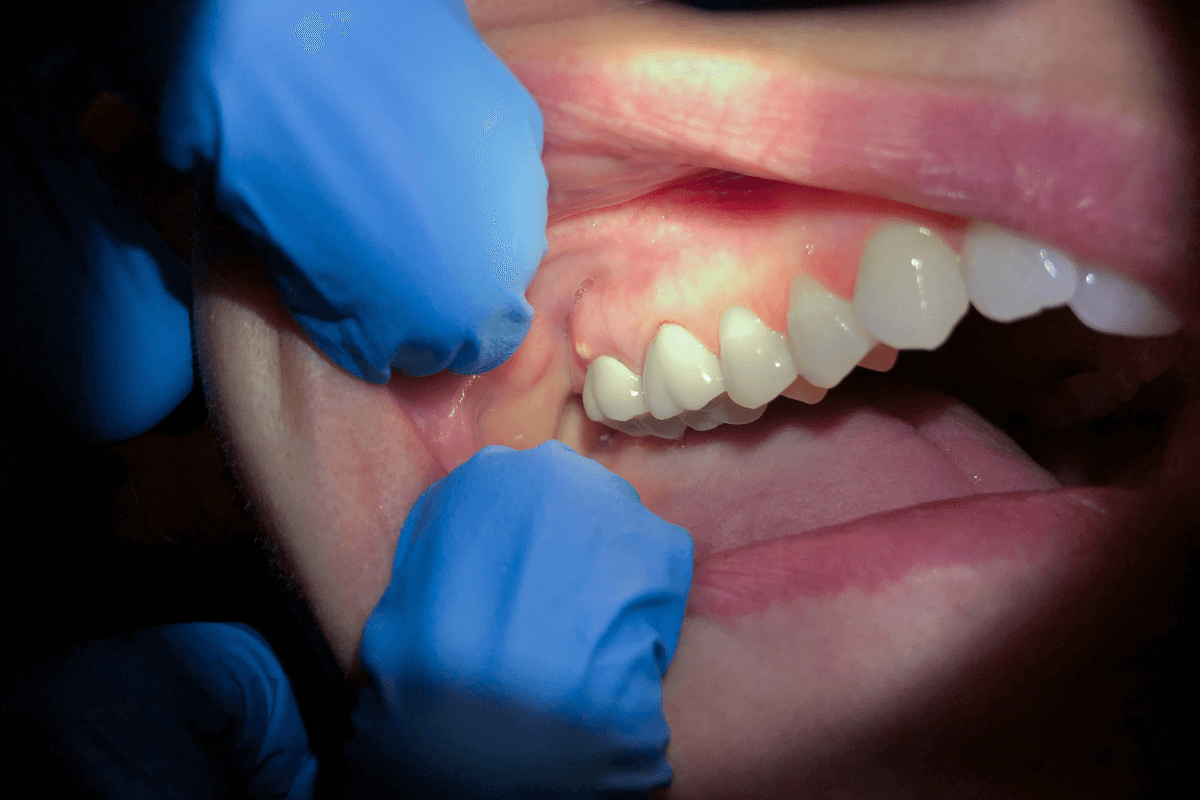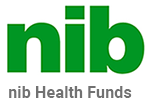
You may speak to the fact that an abscess is among the most painful dental experiences if you've ever had one, which is an infection of the mouth, cheek, jaw, or throat. Even worse, untreated abscesses might directly endanger life.
Dental professionals should always be consulted for tooth abscesses. They develop as a result of bacterial invasion of the dental pulp, the tooth's soft interior that houses blood vessels, nerves, and tissue. Bacteria enter through a dental cavity and spread to the tooth's root through a chip or fracture. The bacterial infection results in swelling and pus production (bacteria, dead tissue, and white blood cells). If left untreated, the bacterial infection can spread from the tooth root to various body locations.
You guessed that right. In this article, we are discussing the dental abscess or tooth abscess, its symptoms, causes, and treatment. But, getting knowledge in depth should start with knowing the problem itself. So, first, let’s check out what a Dental or Tooth Abscess is.
What is a Tooth or Dental Abscess?
An infection can cause a dental abscess, which can develop in the gums, teeth, or even the bone that supports the teeth. A dental abscess is a pocket of infection and bacteria that can be extremely painful and uncomfortable for you. An infection surrounding the root of a tooth or one that has reached the tip of the root might lead to an abscess. If an abscess develops, you have an active infection and should seek immediate medical attention. You must act quickly to seek medical attention because illnesses can develop suddenly and spread widely.
An abscess can either be a gum abscess or a tooth abscess (periapical abscess) (periodontal abscess). Where the infection first started will decide this. The origin and location of a gum abscess are unique because it begins in a pocket of the gum that is next to the tooth root but outside of the tooth.
3 Types of Tooth Abscess
1. Gingival:
The gums become infected with this disease. Normally, it has no impact on the tooth or its supporting components.
2. Periapical:
An infection that develops at the tip of the root is called a periapical abscess. This happens as a result of germs that can enter the pulp of the tooth through a fracture or cavity. The tooth's interior region, the pulp, includes blood vessels and nerves. When bacteria infiltrate the pulp, they may move to the tooth's root tip, where they may spread the infection to the bone and finally cause an abscess.
3. Periodontal:
The bone and tissues that support the tooth are where this infection begins. Adults are more likely than children to have a periodontal abscess, which is typically caused by periodontitis or gum disease.
What are the Common Symptoms of Tooth Abscess? - Symptoms to Observe for Tooth Abscess
- Sharp, excruciating pain in the tooth or gum may start off unexpectedly and worsen over time.
- Ear, Jaw, and Neck pain that is present on the same side as the painful tooth or gum
- High level of discomfort when lying down, which could make it difficult to sleep
- Swelling and Redness in your face
- A tooth that is Sensitive, Discoloured, or Loose
- Shiny, Flamboyant, and Red gums
- Intolerance of hot or cold food and beverages
- Having bad breath or a nasty taste in your mouth
You can also experience overall malaise and a high temperature (fever) if the infection spreads. In extreme circumstances, you could find it difficult to fully open your mouth and struggle to breathe or swallow.
What are the Factors that cause the Abscess in your Tooth? - Cause of Tooth Abscess

Your tooth has a hard exterior, but the interior is filled with a pulp that contains blood vessels, nerves, and connective tissue. It can occasionally become infected. Usually, as a result of
- Decayed teeth or a large cavity
- Periodontal disease, another name for gum disease
- Broken or Unhealthy teeth
If the infection is not treated, it may kill the pulp and cause an abscess. There are two typical categories:
- Your tooth's root tip develops a periapical abscess.
The bone surrounding your tooth is affected by a periodontal abscess.
A person may get several abscesses. Or an abscess may spread throughout a bone and manifest itself in many locations. Each, however, is connected to just one tooth. If you don't brush your teeth at least twice a day or if you consume a lot of sugar in your diet, you're more prone to experience these kinds of problems. Sugary foods and beverages encourage the growth of germs, which can cause cavities and other issues.
High-Risk Factors for a Tooth Abscess
Dry Mouth:
Having a dry mouth can raise your chance of developing tooth decay. A dry mouth is frequently brought on by ageing-related problems or as a side effect of particular kinds of medications.
Sugary Diet:
Eating foods high in sugar, such as sodas and candies, can cause tooth abscesses by causing dental caries in your teeth.
Bad Dental Hygiene:
Not taking good care of your gums and teeth might raise your risk of gum disease, tooth decay, and tooth abscess. This entails skipping the twice-daily tooth brushing and flossing rituals.
How to Get Tooth Abscess Removed? - Treatment for Dental Abscess
Your unique needs will be taken into account when designing your tooth abscess therapy, but typically we will combine one or more of the following approaches:
1. Making an Incision and Draining
Draining off the infection is the best technique to treat an abscessed or infected tooth. The pus can drain out of the abscess with the aid of a tiny incision. Also possible for the dentists are debridement and saline irrigation or washing of the infected area. Debridement is the removal of necrotic or dead tissue that cannot recover.
2. Antibiotic Treatment
Draining the abscess is not always simple or even doable. The effects of local anaesthetics can be "neutralised" by a major oral infection, making it more challenging to numb the patient for treatment. When a lower molar infection is severe, it is more challenging to numb those teeth. In such circumstances, it is necessary to start the patient on the proper antibiotic to lessen the infection so that the local anaesthetics can provide comfortable treatment.
3. Root Canal Treatment
A dental procedure called a root canal treatment removes the nerve, arteries, and veins that are located in the core of the tooth root. A root canal on an infected tooth can help drain the abscess and eradicate the infection. To boost strength and maintain the tooth, the tooth is replaced with a crown after the infection has healed.
4. Tooth Extraction
To empty the abscess and speed up the recovery of the infection, the affected tooth will be extracted if it cannot be saved.
5. Hospitalisation
The dental patient might need to be examined in a hospital environment if, despite receiving antibiotics and other treatments, swelling or fever persists or gets worse. In these situations, we'll need to work with a nearby oral surgeon with hospital privileges, but we'll be your advocate every step of the way to make sure you don't get "lost" in the hospital emergency room, dealing with doctors who might not be qualified to manage the problem.
How Should you get ready for a Dental Appointment for an Abscessed Tooth?
In order to facilitate your Dental appointment:
List out the Symptoms
List all of your symptoms, even those that don't seem to be related to mouth or tooth discomfort. Keep in mind that your dentist can only assist you if they are aware of all the circumstances.
Make a List of Medicines and Dietary Supplements
Make a note of all the prescription drugs, vitamins, herbs, and supplements you could be taking, along with their amounts.
List of Questions to bring up at your Dental Appointment
- What is probably the root of my symptoms and health issue?
- Which tests would you advise?
- Which course of action is ideal?
How to Care for your Teeth to Stay away from Tooth Abscess? - Prevention for Dental Abscess
- By maintaining your teeth and gums as healthy as possible, you can lower your risk of getting dental abscesses. You should:
- At least once a day, clean under your gums and between your teeth with floss or an interdental brush.
- Use fluoride toothpaste twice daily and spend at least two minutes each time brushing your teeth.
- Spit out any extra toothpaste instead of washing your mouth with water or mouthwash because this removes the protecting toothpaste from your teeth.
- Reduce consumption of starchy, sugary, and between-meal items, as well as right before bed.
- Visit your dentist frequently; depending on your oral health, they can advise you on how frequently you should have a checkup.
Wrapping it up:
Don’t Forget and Be assured that your dentist wants to keep you and your teeth in good health. They are an essential member of the healthcare team, just like other medical experts you may encounter. Don't put off essential checks and make sure to visit your dentist frequently—prevention is key! These checkups provide your dentist the chance to identify issues early when they might be simpler to fix. It's crucial to visit your dentist if you're in pain so they can provide you with the necessary care. Book your appointment now at your nearest Local Dental Clinic and Keep your Dental Health at its best..!!
Go Back

















